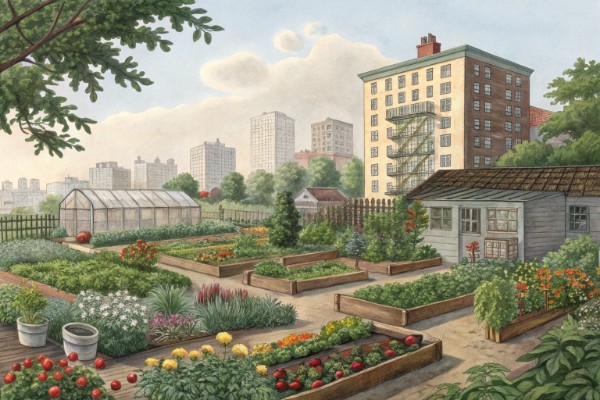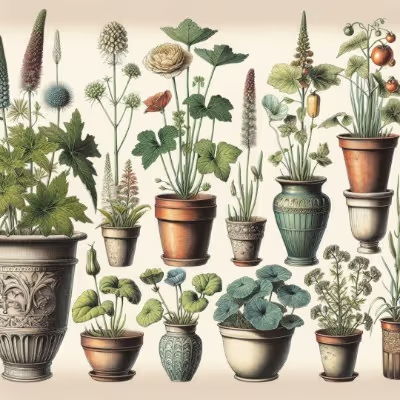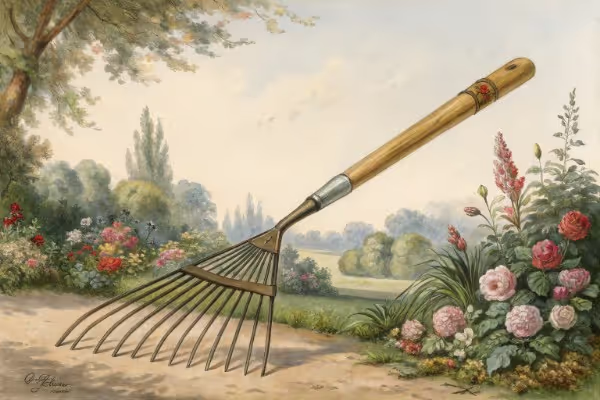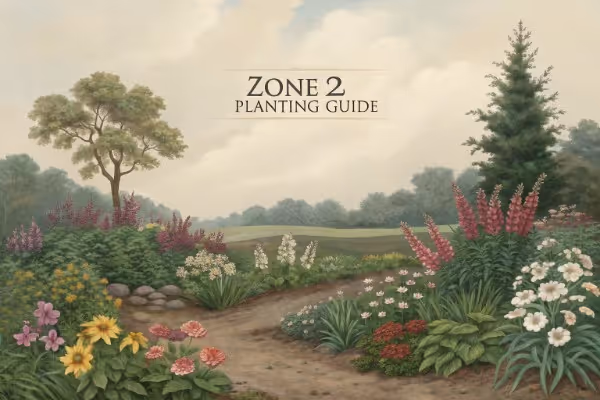Pallet Garden Ideas: Smart Ways to Grow More in Small Spaces

pallet garden
Build a pallet garden today to maximize vertical space, recycle old wood, and grow food or flowers in tight quarters. A sturdy pallet offers instant grids—perfect for herbs, lettuces, or even strawberries. Pallet gardens transform patios, balconies, or fences into lush, productive backdrops. Grab your gloves and let’s make those planks work double-time—your next harvest could be just a board away.
Cheatsheet: Vertical Harvest Made Simple
🌲 Choose Your Pallet
- Use a heat-treated (HT) pallet (avoid chemically treated).
- Check for solid slats and no splinters.
- Standard size: 48"x40" (120x100 cm).
🔧 Tools and Products You'll Need
- 1 wooden pallet
- Landscape fabric or weed barrier
- Staple gun & staples
- Potting soil (2–3 cu ft / 60–90 L)
- Seedlings or seeds
- Hammer
- Screwdriver or drill
- Mounting brackets (if vertical)
🌱 Best Crops for Pallet Planting
- Leafy greens: lettuce, spinach, kale
- Herbs: basil, parsley, cilantro
- Strawberries, pansies, violas
- Radishes, baby carrots (choose compact varieties)
🪴 Step-by-Step Assembly
- Clean Pallet
- Scrub debris and let dry.
- Attach Fabric
- Cover back, sides, and bottom. Staple tightly.
- Fill with Soil
- Add soil between slats, press down to settle.
- Plant Seedlings
- Tuck roots into slats, firm soil around plants.
- Water Deeply
- Moisten all layers. Keep moist, not soggy.
- Wait 2 Weeks
- Let roots anchor before tilting upright.
- Mount & Enjoy
- Lean or mount vertically. Ensure sunlight (6+ hrs/day).
🌿 Care & Tips
- Water daily in heat (>77°F/25°C).
- Fertilize monthly with balanced liquid food.
- Rotate crops seasonally. Replace spent soil yearly.
🥗 Nutrition & Self-Sufficiency
- Save up to 150 gal/570 L water yearly vs. ground beds.
- Fresh greens: up to 40% more nutrients than store-bought.
- One pallet supports 2–3 salads/wk in season.
Pallet Gardens: The Practical Art of Vertical Growing
Pallet gardens snuck up on me like most good ideas—right when I was running out of space and patience. There's a certain satisfaction in wrangling a weathered shipping pallet and pressing it into a new life as a vertical planter.
Pallet gardening means using recycled wooden pallets as DIY planting containers, often for vertical or small-space gardening. The method originated with urban growers, but I’ve seen it catch on even in sprawling backyards. It’s thrifty, practical, and, when planted up, oddly beautiful.
Why Use Pallets?
Let’s cut to the chase: pallets are cheap (often free), lightweight, and easy to customize. According to the EPA, Americans discard over 540 million wooden pallets annually. Reusing even a few makes a dent.
Standard pallets measure about 40 by 48 inches (102 by 122 cm)—roomy enough for a lush wall of greens or herbs. Their slatted design allows roots to breathe while keeping soil steady. I’ve wrangled everything from lettuce to strawberries to trailing nasturtiums into them.
What Grows Well in a Pallet Garden?
- Herbs: Mint, thyme, oregano, basil, parsley
- Leafy greens: Spinach, arugula, lettuce, chard
- Flowers: Pansies, violas, nasturtiums, petunias
- Strawberries
- Succulents
Root crops, like carrots or potatoes, despise the shallow confines. Stick to shallow-rooted or trailing species for lush results.
How to Build a Pallet Garden
- Sourcing: Skip chemically treated pallets. Look for “HT” (heat-treated) stamped on the side—avoid “MB” (methyl bromide). I always ask my local hardware store for discards.
- Prep: Sand sharp edges. I line the back and bottom with landscaping fabric using a heavy-duty staple gun to hold soil.
- Plant: Turn it face-up, fill each slat with potting mix, tuck in your seedlings, water deeply.
- Placement: Prop vertically against a wall for drama or flat on the ground for traditional rows.
If this sounds like a headache, pre-made vertical planters exist. Gardener’s Supply and GreenStalk offer ready-built options with more polish but less personality.
Pallet Garden Maintenance Tips
Vertical gardens dry out faster. I water every morning during high summer, sometimes twice daily if temperatures rocket above 90°F (32°C). Mulch reduces evaporation.
Feeding is another story. Slow-release organic fertilizers save time. Compost tea once a month keeps my plants sprightly.
“Container gardens—vertical or traditional—need more frequent watering and feeding than in-ground beds,” says Barbara Pleasant, author of The Complete Compost Gardening Guide.
Top 5 Mistakes I See with Pallet Gardens
- Using treated or painted wood (toxic leaching risk)
- Poor drainage—roots rot, slugs move in
- Overcrowding plants, leading to spindly growth
- Ignoring structural stability—falling pallets do real damage
- Neglecting regular feeding and watering
Pallet Garden vs. Other Vertical Gardening Systems
- Pallet: Cheapest, most customizable, rustic aesthetic
- Modular pocket systems: Sleek, pricier, often self-watering
- Wall planters: Stylish, but costlier and harder to DIY
Pallet gardens win for upcycling and sheer hands-on satisfaction. For those who demand perfection and modularity, commercial solutions have the edge.
Where to Buy or Get Free Pallets
- Local hardware stores, garden centers
- Craigslist or Facebook Marketplace
- Construction sites (ask first)
- Grocery and feed stores
Always inspect for splinters, stains, or chemical smells.
Safety First: Are Pallet Gardens Food Safe?
HT (heat treated) pallets avoid chemical residues. Still, line with thick plastic or landscape fabric if growing edibles. Never use pallets with MB or questionable markings.
I run a quick sniff test and look for clean wood before planting. Still nervous? Opt for edible-safe planter kits or invest in cedar raised beds.
DIY Pallet Garden Checklist
- Heat-treated pallet (HT stamp)
- Sandpaper, staple gun, and landscaping fabric
- High-quality organic potting soil
- Mulch, water source, and slow-release fertilizer
- Plant selection matched to sun exposure
If you’d rather skip the guesswork, I’ve had consistent luck getting planting calendars and zone-specific tips from Taim.io. They tailor guidance and reminders based on your garden’s quirks.
Statistics and Firsthand Observations
Pallet gardens can double usable gardening area; in my own space, a single upright pallet added 16 square feet (1.5 m2) of planting surface along a bare wall. I’ve yet to see deer or rabbits bother a vertical setup.
According to the National Gardening Association, 34% of American households now grow food in urban or small-space settings—a number that’s surged since 2020.
Pallet Garden FAQ
- How long do pallet gardens last? Untreated pallets rot after 2-3 years in wet climates. Some growers paint or seal with food-safe oil for longer life.
- Can you move a pallet garden? Yes, but only when empty. Once planted and watered, they weigh 80-120 lbs (36-54 kg). Don’t try to drag a loaded pallet.
- Do vertical pallet gardens attract pests? Less than ground beds, but keep an eye out for slugs in damp weather.
“Grow food, reuse waste, and create beauty—pallet gardening does it all on a shoestring.”
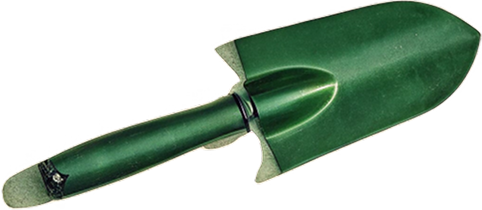
Want smarter plant choices? 🪴
Frequently Asked Questions
What types of plants thrive in structures built with repurposed wooden frames?
Herbs such as basil, parsley, thyme, and mint flourish due to their shallow roots. Leafy greens like lettuce, spinach, and arugula also perform well. For flowering plants, opt for sturdy varieties like pansies, marigolds, and petunias. Root vegetables or plants that require deep soil may struggle unless additional depth is provided.
How should I prepare the wood to boost durability and safety?
Always inspect the wood for stamps labeled “HT” (heat-treated). Avoid planks marked “MB,” as they indicate methyl bromide treatment, which poses risks to plants and people. Sand the wood thoroughly to remove splinters, then seal with a food-safe, non-toxic wood sealant to reduce weathering and potential leaching.
How can I ensure effective drainage for healthy roots?
Line each tier or compartment with breathable landscape fabric before adding soil. This material lets excess water escape while keeping soil in place. Drill several half-inch (1.25 cm) holes along the bottom edges of the framework to prevent waterlogged roots, especially in areas with heavy rainfall.
What location best suits these vertical installations?
Select a spot with at least six hours of sunlight daily for sun-loving plants. If growing shade-preferring varieties, partial sun (around four hours) suffices. Place the structure against a fence or wall for wind protection and to maximize vertical support.
When should I water and how often?
Because these growing systems drain quickly, check soil moisture daily in warmer months. Water when the top inch (2.5 cm) of soil feels dry. In hot climates above 85°F (29°C), watering may be needed once or twice a day. During cooler or rainy periods, reduce to every two to three days to avoid oversaturation.
How do I guard against pests and maintain plant health?
Regularly inspect leaves and stems for common pests like aphids or slugs. Use organic neem oil or insecticidal soap for outbreaks. Rotate plant choices each season to reduce disease buildup and replenish soil nutrients by adding compost between plantings.
Pallet garden projects let you squeeze real abundance into the tightest corners. With a few boards and a bit of soil, you can build a pocket-sized patch that punches above its weight. Herbs, salad greens, strawberries—all thrive in these rough-hewn frames. Keep your soil rich, water often, and don’t shy from using scraps like citrus peels for fertilizer, or eggshells to balance acidity. If weeds creep in, try a homemade weed killer to keep things tidy. For tool advice, check this guide. Pallet gardens bring satisfaction and food within arm’s reach. Start simple, experiment, and let your space teach you what works. That’s the beauty—gardening never stands still.
Prepper’s Guide to Pallet Gardens
Pallet gardens outperform raised beds for rapid, high-density food production in tight quarters. Efficiency, speed, and upcycling drive their appeal for those seeking food security and self-reliance.
Strategic Location Matters
- Align pallets south-facing for max sun (6–8 hours optimal).
- Windbreaks—fence, hedge, or tarp—prevent soil drying and plant stress.
- Proximity to water supply cuts labor and loss.
Soil and Amendments for Sustained Yield
- Layer 2–3 in (5–8 cm) compost beneath soil for root vigor and microbial health.
- Test pH (6.0–7.0 ideal); add lime or sulfur as needed.
- Mix biochar for increased drought resilience and nutrient holding.
Plant Selection for Maximum Output
- Choose compact, fast-maturing crops: lettuce, spinach, radish, bush beans, compact tomatoes.
- Stagger plantings every 10–14 days for a rolling harvest.
- Add perennial herbs—thyme, oregano—for resilience and minimal care.
Water Management and Drought-Readiness
- Install drip irrigation or use perforated tubing to deliver water at root zone.
- Mulch with straw or shredded leaves to retain moisture; renew every 4–6 weeks.
- Collect rainwater; a single 50-gal (190 L) barrel supports several pallets for weeks.
Health and Nutrition Return
- Leafy greens from pallet gardens supply vitamin K, iron, and antioxidants within 25–30 days of sowing.
- Home-grown produce cuts pesticide intake by up to 85% compared to store-bought.
- Harvested foods last longer, contain higher phytonutrient levels, and reduce reliance on fragile supply chains.
Long-Term Self-Sufficiency Practices
- Rotate crops in each pallet seasonally to maintain soil fertility.
- Save seeds from non-hybrid plants for the next cycle.
- Compost all plant waste to close the fertility loop and minimize survival input costs.
Find out which plants will thrive in your garden!
Answer a few fun questions and get custom plant recommendations perfect for your space. Let’s grow something amazing together!

start your season

